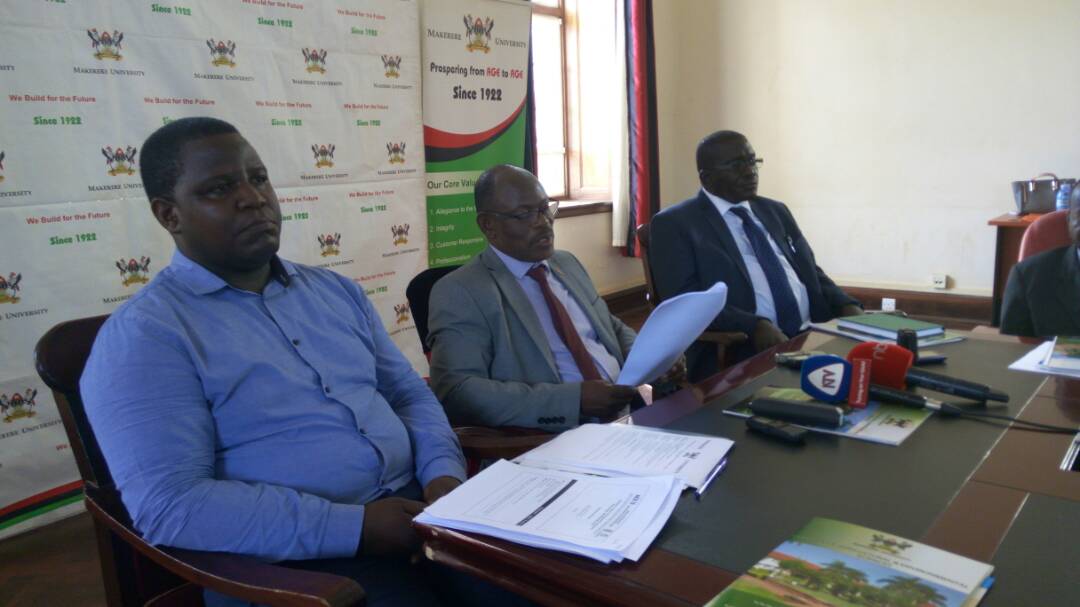Makerere University has secured USD 12 million (Shs 43.7 billion) in grants from the World Bank to establish two centres of excellence in the fields of nanotechnology and agriculture. The projects will see the university scale up its research development capacity in terms of skills and infrastructure while innovating to solve Uganda’s pertinent problems.
One of the centres will focus on materials product development and will be based at the College of Engineering, Design, Art and Technology (CEDAT). The other, that aims to improve crop varieties will be housed at the Makerere University Agricultural Research Institute in Kabanyolo.
Both projects have already been commenced with construction works in the offing, and funding will run for a 5 year period. The fuding is split into two with each centre worth Shs 21.8 billion.
World Bank funded 40 such project proposals across East and Southern Africa and Makerere won two of these regional state-of-the-art centres. This was revealed on Monday by the new Vice Chancellor Prof. Barnabas Nawangwe and the relevant project officers at a press briefing held at the main campus.
According to Dr. Michael Lubwama, the Deputy Director at the Material Product Development and Nanotechnology (MAPRONANO) the centre will strengthen research and training in areas of materials science and engineering, nanotechnology and nanomedicine in partnership with the College of Health Sciences.
The facility is to offer highly specialised short courses in welding technology, health safety engineering, oil and gas, bio informatics among others.
Nanotechnology derived from ‘nano’ (extremely small) refers to the science of manipulating materials on an atomic or molecular scale especially to build microscopic devices (such as robots)
The technology can be used to help treat disease and prevent health issues as well as industrial and purification processes including desalination of water, water filtration, wastewater treatment and groundwater treatment.
“This money will be used to furnish laboratories as well as offering Masters and PhD scholarships. The centre will train 68 Masters and 12 PhD students in mechanical engineering, science technology and industrial development,” Dr. Lubwama said.
Through its short courses and trainings, the centre will engage not only students but practitioners to boost their skills and make them employable. “We want to do research at a higher level that was not previously done in the region,” he added.
Training in the field will produce professional scientists and well trained technicians/engineers while strengthening research publication.
In the area of agriculture, Makerere University is looking to build capacity in plant breeding and biotechnology and create crop varieties that will enhance Uganda’s productivity which remains a barrier to farming. The Kabanyolo institute is set to train 30 PhDs and 40 Masters level plant breeders that will produce cutting edge technologies that can be adopted for agro industry.
“By 2050, Uganda’s population could get to 60 million while the world’s could rise to 9 billion. These people will need food and the world is grappling with the food problem,” Dr. Richard Edema the Principal Investigator and Director for the Makerere University Regional Centre for Crop Improvement (MaRCCI) said.
“Everybody is looking at Africa to produce food for the rest of the world, so, we need to better our agriculture by making better yields that are nutritious,” he said.
In the face of increasing threats of drought and pests, Dr. Edema said, crops like sorghum and cowpeas which are resistance to tough conditions need to be transformed into industrial value.
At Kabanyolo, the funding will facilitate the establishment of a greenhouse, seed store and seed handling facilities as well as learning infrastructure.
The Vice Chancellor Prof. Nawangwe said that the two centres are a significant development in Makerere’s pursuit to be a hub for research. He said that the institution is currently ranked second in Africa in the area of research but it is aiming to lead the continent.
“There is no way our continent will develop without research and developing a critical mass of people who are at PhD level. This is how we shall address problems like food security, poverty and diseases.”
Nawangwe said Africa’s development was dragged by an imperialistic perception that higher education was a private good which limited investment in the field.










